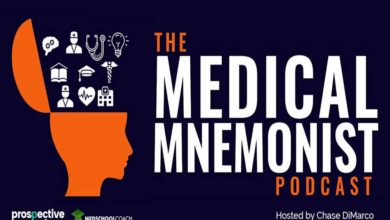Chase DiMarco talks about how you can use deliberate practice to become an expert. This time around, he delves deeper into studies and examples from “Peak: Secrets from the New Science of Expertise” by Dr. K. Anders Ericsson (RIP).
- [02:02] Improvement Comes from Practice
- [04:07] Steps of Deliberate Practice
- [07:33] Inefficiencies in Medical Education & Practice
- [12:42] Adaptive Thinking
- [13:42] There is No Natural Ability
- [14:28] Identifying Your Weak Points
Steps of Deliberate Practice
Begin by setting a purpose driven goal. Ask yourself what it is that you want to achieve and why it’s important to you. Next, strategize on how you will be working towards that goal. Remain focused on taking small, actionable steps. If you can, gather feedback about your progress. Feedback is helpful to know if you are moving towards the right direction. Use this to correct your course or to stay on track.
It is impossible to get better by staying in your comfort zone. Keep pushing outside of your boundaries a little bit each time. Try adding more difficulty or doing things differently. By introducing these changes, you process information in a new way. You can also find a mentor to facilitate learning.
Inefficiencies in Medical Education & Practice
Traditional medical schools tend to focus on knowledge instead of clinical performance. One of the reasons being that it’s easier to test information instead of skills. Unfortunately, test scores are not linked to patient outcomes. As a result, there is a huge gap between medical knowledge and skills. There needs to be a greater focus on training instead of just textbook learning.
Studies have shown that physician performance worsens over time. Didactic Continuing Medical Education (CME) does not seem to significantly impact long term knowledge acquisition or performance. In the field, doctors are not given frequent feedback. Physicians may also neglect setting goals because they do not know what to strive for. All these inefficiencies in the healthcare system reveal that the steps of deliberate practice are missing.
Adaptive Thinking
The military teaches its personnel a technique called adaptive thinking. Service members are encouraged to think outside of the box and to anticipate negative outcomes. Those who received training in adaptive thinking were found to be more flexible. They are better at overcoming unexpected obstacles. Similarly, we can practice this kind of thinking by focusing on our weak points. Take the time to reflect on your current problems and the kinds of issues that may come up in the future.
How to Identify Your Weak Points
It can be tricky to know what parts you need to improve on. By taking assessments or diagnostic tests, you can narrow down problem areas. However, this does not reveal why you are weak at certain topics or skills. A tutor or mentor can help you identify the reason behind your shortcomings.
But more importantly, improvement happens when you don’t give up. Constant learning and change are needed for you to progress. Continue to push out of your comfort zone. Small but incremental progress over time is how you build mastery.
Listen to Medical Mnemonist’s episode with Dr. K. Anders Ericsson: Deliberate Practice for Medical Students. Check out Peak: Secrets from the New Science of Expertise. For more tips, grab a copy of Read This Before Medical School. Don’t forget to leave a rating!
Share your experiences, tips, and suggestions to [email protected]. Or you can directly reach out to Chase on LinkedIn, Twitter, or Instagram. Join the Medical Mnemonist Master Mind Facebook group and find our Blog posts, Podcasts, and other Resources at FreeMedEd.org!
